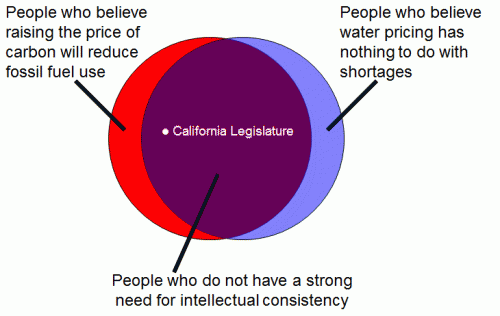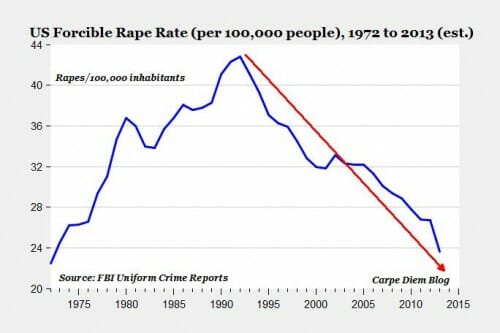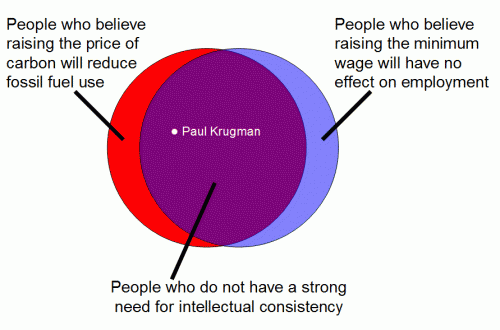Yesterday, when writing about the US Forest Service (USFS) restrictions on commercial photography in wilderness areas, I discussed the contradictions that make their policy problematic
The USFS has undermined their own argument by making exceptions based on the purpose of the filming. Apparently only commercial filming hurts ecosystems, not amateur photography. And apparently commercial filming that has positive messages about the USFS are OK too. Its just commercial filming that goes into a beer company ad that hurts ecosystems. You see the problem. If it's the use itself that is the problem, then the USFS should be banning the use altogether. By banning some photography but not all based on the content and use of that photography, that strikes me as a first amendment issue.
Despite working with the USFS on lands management every day, this policy was new to me. I hypothesized
[There is a] large group in the USFS that is at best skeptical and at worst hostile to commercial activity. They would explain these rules, at least in private, by saying that anything commercial is by definition antithetical to the very concept of wilderness that they hold in their heads, and that thus all commercial activity needs to be banned in the wilderness because it is inherently corrupting.
Reading Overlawyered, I saw this US Forest Service quote from the Oregonian to explain their position on commercial photography:
Liz Close, the Forest Service's acting wilderness director, says the restrictions have been in place on a temporary basis for four years and are meant to preserve the untamed character of the country's wilderness.
Close didn't cite any real-life examples of why the policy is needed or what problems it's addressing. She didn't know whether any media outlets had applied for permits in the last four years.
She said the agency was implementing the Wilderness Act of 1964, which aims to protect wilderness areas from being exploited for commercial gain.
"It's not a problem, it's a responsibility," she said. "We have to follow the statutory requirements."
So it appears that the purpose of the Wilderness Act is interpreted by the USFS as "protect wilderness areas from being exploited for commercial gain."
But the Wilderness Act makes just a brief mention of commercial activity (It was written back in the day when laws did not have to be 2000 pages long, so you can read the who thing here). Its main purpose is to keep the lands wild and the ecology as free as possible from man's intervention
In order to assure that an increasing population, accompanied by expanding settlement and growing mechanization, does not occupy and modify all areas within the United States and its possessions, leaving no lands designated for preservation and protection in their natural condition, it is hereby declared to be the policy of the Congress to secure for the American people of present and future generations the benefits of an enduring resource of wilderness. For this purpose there is hereby established a National Wilderness Preservation System to be composed of federally owned areas designated by the Congress as "wilderness areas," and these shall be administered for the use and enjoyment of the American people in such manner as will leave them unimpaired for future use and enjoyment as wilderness, and so as to provide for the protection of these areas, the preservation of their wilderness character, and for the gathering and dissemination of information regarding their use and enjoyment as wilderness...
A wilderness, in contrast with those areas where man and his works dominate the landscape, is hereby recognized as an area where the earth and its community of life are untrammeled by man, where man himself is a visitor who does not remain. An area of wilderness is further defined to mean in this Act an area of undeveloped Federal land retaining its primeval character and influence, without permanent improvements or human habitation, which is protected and managed so as to preserve its natural conditions and which (1) generally appears to have been affected primarily by the forces of nature, with the imprint of man's work substantially unnoticeable; (2) has outstanding opportunities for solitude or a primitive and unconfined type of recreation; (3) has at least five thousand acres of land or is of sufficient size as to make practicable its preservation and use in an unimpaired condition; and (4) may also contain ecological, geological, or other features of scientific, educational, scenic, or historical value.
There is nothing in this that in any way shape or form should be affected by photography (unless the photography has some sort of heavy footprint, like making a Hollywood movie with hundreds of people and equipment and catering trucks, etc.).
The Wilderness Act is not primarily about protecting the Wilderness from commercial gain. It is about protecting the natural operation of ecosystems from intervention of any sort by man. Commercial activity is barely mentioned, and only as a minor aside deep into the legislation. But many US Forest Service employees have an antipathy to commercial activity and have sort of reinterpreted it in their mind as being an anti-commercialism act. Here are the only mentions of commercial activity in the law:
Except as specifically provided for in this Act, and subject to existing private rights, there shall be no commercial enterprise and no permanent road within any wilderness area designated by this Act and except as necessary to meet minimum requirements for the administration of the area for the purpose of this Act (including measures required in emergencies involving the health and safety of persons within the area), there shall be no temporary road, no use of motor vehicles, motorized equipment or motorboats, no landing of aircraft, no other form of mechanical transport, and no structure or installation within any such area. ...
Commercial services may be performed within the wilderness areas designated by this Act to the extent necessary for activities which are proper for realizing the recreational or other wilderness purposes of the areas.
In this usage (I am not an attorney so there is likely a long history of how the term "commercial enterprise" is understood in the law) my sense is this means that people are not to be conducting commerce -- trading goods and services for money- within the boundaries of the wilderness area. Essentially, they don't want a gift shop or McDonald's there. Grouped with the bit about roads, this is a paragraph about facilities and equipment and having a footprint.
So is a lone person taking pictures a commercial enterprise within the area? I doubt it. The actual commerce is conducted outside the park and there is nothing about photography that impairs the wilderness nature of the park. My interpretation is that taking pictures is OK but setting up a photography store is forbidden. But by the US Forest Service's definition, I suppose they should also ban people from collecting material for a book. If I walk through the wilderness area taking notes for a book I want to write, and then leave the area and write it and sell it, I am not sure how this is any different from commercial photography. And does this mean that I can't wear any clothes or bring any equipment into the wilderness area that I purchased commercially?
PS- Beyond a skepticism about capitalism, there is an other reason public lands people might want to shortcut the Federal Wilderness Act as "preventing commercial activity" -- it lets them off the hook. The Wilderness Act was about preventing meddling in the ecosystem (an impossible goal, but we will leave that for another day) and this applied to all groups -- commercial, government, educational. By shortcutting the Act as being about commerce, it helps folks forget that the same strictures should apply to agency personnel as well. I was up in Yellowstone listening to discussions of reintroduction of the wolf and the ongoing killing of thousands of non-native fish in Yellowstone Lake and various streams. The goal of these interventions is to reverse past interventions, but even so they strike me as violations of the Federal Wilderness Act.


